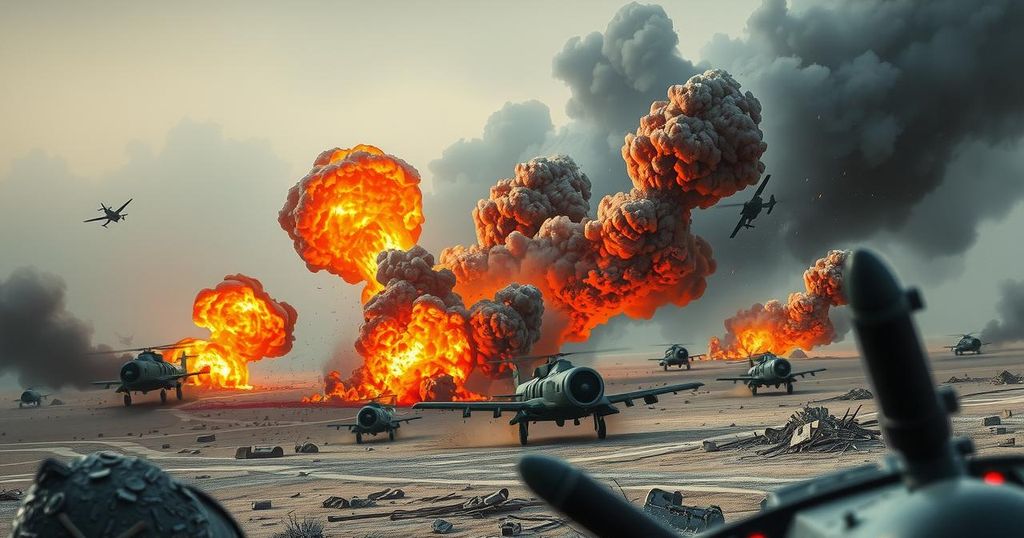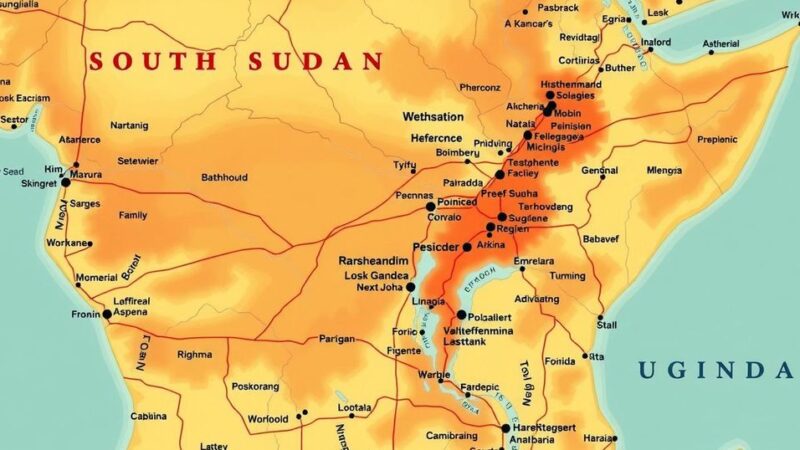U.S. airstrikes targeted Houthi military capabilities in Yemen, destroying numerous strategic locations. Pentagon officials emphasized that U.S. interests remain paramount and outlined that Iran would be held accountable for Houthi actions. The air operations signify a shift in tactics, moving away from previously limited engagements. Discourse surrounding the U.S. role in this conflict continues as experts question the need for involvement.
U.S. airstrikes over the weekend targeted Yemeni Houthi rebel capabilities, destroying over 30 military targets including drone, missile, and air defense systems. Joint Staff Director for Operations, Lieutenant General Alexus Grynkewich, stated that while numerous military casualties were reported, there were no credible indications of civilian harm. The strikes sought to weaken Houthi operational capacities after ongoing attacks on U.S. forces and commercial shipping in the region.
The Pentagon underscored a strong message with these operations, asserting that any attacks on American troops would yield consequences. Sean Parnell, the Pentagon’s chief spokesperson, clarified that this initiative is not aimed at regime change but prioritizes U.S. interests. President Donald Trump indicated that should the Houthis retaliate, Iran would be held accountable for those actions, as they allegedly provide resources and strategic support to the group.
Following the U.S. airstrikes, the Houthis launched unsuccessful attacks against the aircraft carrier USS Harry S. Truman. Secretary of State Marco Rubio noted that the Houthis had targeted U.S. Navy forces and commercial vessels frequently, increasing the need for decisive military action. The ongoing military campaign is distinguished from previous limited U.S. responses, marking a shift in strategy.
While some experts assert the necessity of striking Houthi targets to enhance maritime safety in the Red Sea, others believe the U.S. involvement may not be warranted, asserting that the impact of Houthis is felt more by European and Chinese interests than by Americans. Voices advocating for restraint question the extent of U.S. military engagement in the conflict, especially given the Houthi attacks’ decrease since last year.
The rhetoric surrounding U.S.-Iran relations remains tense, particularly as Iran continues to enrich uranium to levels near weapons-grade. This presents significant concerns as Tehran denies any intentions of pursuing nuclear weaponry, despite skepticism from international experts regarding the civilian usage of such enriched uranium.
In summary, U.S. airstrikes on Houthi targets indicate a significant shift in military strategy, focusing on protecting American interests in the region. The strikes convey a clear warning to both the Houthis and Iran regarding the repercussions of aggression against U.S. forces. However, debates on the necessity of U.S. intervention and the broader implications of this military campaign continue to prevail. The situation remains dynamic, particularly concerning Iran’s nuclear ambitions and regional influence.
Original Source: www.foxnews.com






